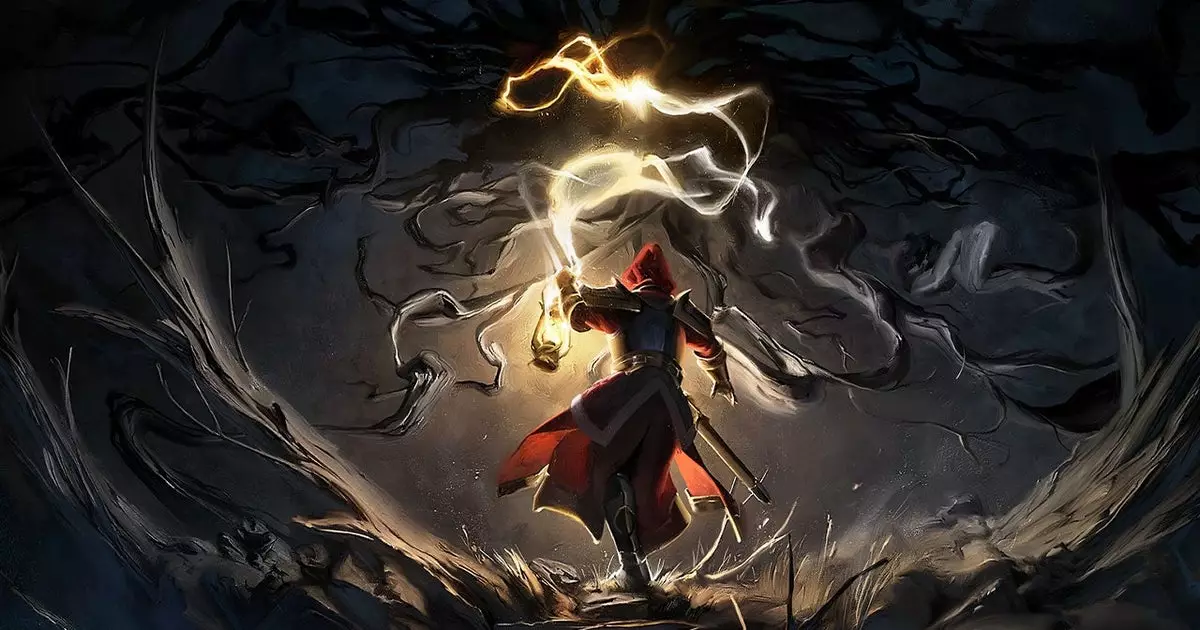When examining the realm of indie games, one often stumbles upon titles that blend familiar elements in a way that feels both nostalgic and refreshing. “Mandragora: Whispers of the Witch Tree” certainly catches the eye as a notable entry in the dark fantasy genre. Initially, it may appear as a routine side-scroller that leans heavily on established tropes—from action RPG mechanics to a visually rich, gothic aesthetic reminiscent of beloved titles like *Castlevania*. However, diving a little deeper into the game reveals a narrative that promises to captivate players amid the chaos of its action-packed gameplay.
Set in an eerie apocalypse dominated by a tyrannical King Priest, players are thrust into the role of a Crimson City inquisitor, navigating a world replete with dark magic and tortured souls. The intriguing premise sets the stage for a rich narrative experience, where players engage in morally complex decisions, such as mercy-killing a witch—the act that catalyzes the unfolding story. The juxtaposition of player agency against the backdrop of the King Priest’s oppressive regime casts a poignant shadow on the gameplay, making it more than just an adventure through pixelated landscapes.
Artistry and World-Building
From the outset, the visuals in *Mandragora* generate a sense of unease and fascination. Character portraits recall the defiance and agony of classic paintings, evoking emotions through their unsettling expressions. Some players might find this artistic choice jarring, but for many, it adds a layer of intrigue to the narrative. The vividness of the world—where the cornstarch-like thick atmosphere of dialogue contributes to an expansive lore—provides ample opportunity for deep exploration. Every interaction feels purposeful as players traverse the streets of Crimson City, immersing themselves in the unfolding drama.
The game strikes a balance between storytelling and exploration, leading inquisitors through winding lands full of both grim adversaries and towering wonders. Unlike many of its contemporaries that lean exclusively on mindless action and repetitive mechanics, *Mandragora* encourages players to engage with their environment. It compels them to look beyond basic objectives, emphasizing a rich interaction with the world that enhances the overall experience.
Gameplay Dynamics: More than Just Combat
Though primarily an action RPG, *Mandragora* innovatively integrates a variety of gameplay mechanics that elevate it from mere entertainment to an experience laden with strategic intricacies. The player’s ability to mix stamina management with empowerment abilities offers a dynamic combat system that rewards thoughtful play. Evasion and strategic dodging provide the player with opportunities to outmaneuver foes in a dance of survival, which evokes nostalgic comparisons to classic titles while still feeling fresh and immersive.
To enhance the gameplay further, the design of levels feels carefully curated. With their winding paths and numerous secrets, players are encouraged to explore areas meticulously—a characteristic that evokes favorable comparisons to beloved franchises like *Dark Souls*. These intricate environments turn every corner into a playground for exploration while maintaining the tension that arises from confronting various challenges.
Narrative Richness: The Heart of the Experience
Yet, the strongest component of *Mandragora* lies in its narrative. It refrains from merely serving as a backdrop for combat; instead, it actively involves players in the story’s unfolding drama. Moments such as a merchant’s cursing and immediate shift in demeanor upon recognizing the player’s status reveal how character-driven this game is. The developers understand the importance of character-building moments and utilize them to deepen the player’s engagement with the narrative.
Through the interplay of gameplay mechanics and storytelling, *Mandragora* emerges as a game that knows how to draw players into its world. Rather than serving as a simple conduit for mechanics and loot collection, it harmonizes these elements to create a compelling fantasy setting.
The promise of a commanding 40+ hours of gameplay ensconced in a rich narrative world suggests that *Mandragora: Whispers of the Witch Tree* is not just another entry in the action RPG genre. Instead, it aims to carve out a unique identity quite unlike anything seen before, setting itself apart through its profound story and richly detailed environments.

